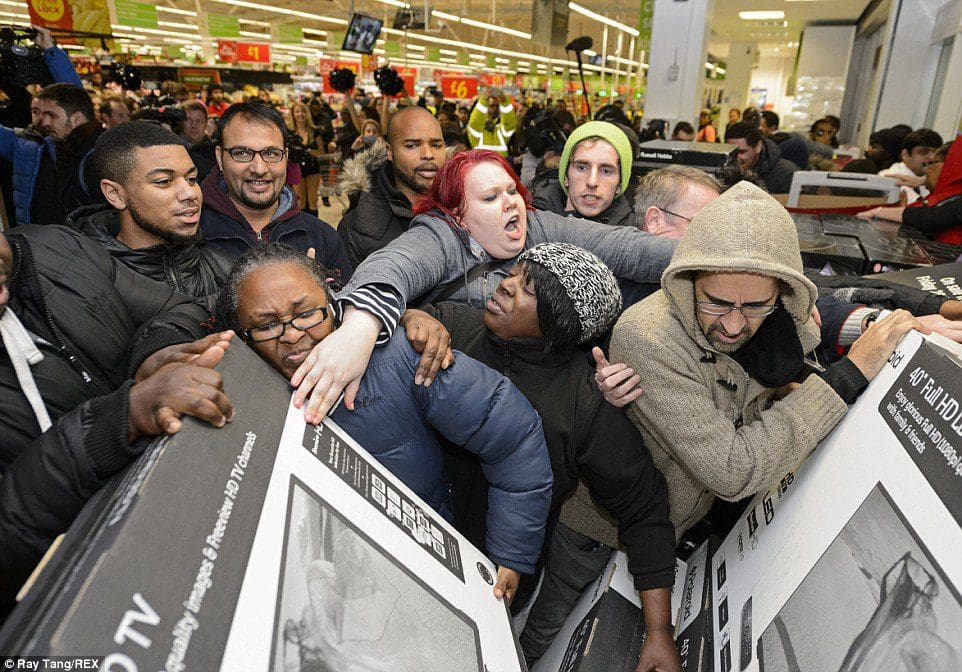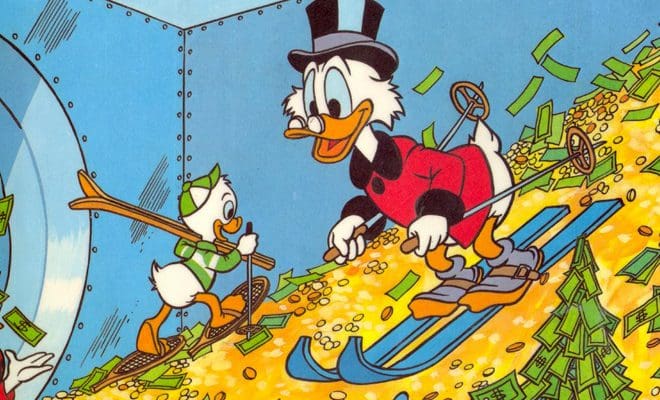Love it or loathe it, Black Friday is here to stay in the UK. But where did this infamous (and frequently dangerous) frantic day of shopping come from? How did Black Friday begin?
The Beginning
As you probably know, Black Friday originated in the USA. The first use of the term can be traced back to the 1960s, where the ‘Black’ in Black Friday represented the accounts of shops moving from the ‘red’ to the ‘black’ during the post-Thanksgiving Christmas shopping rush. The first Friday after Thanksgiving had been recognised for some time as the unofficial start of the shopping season, and being one of the busiest shopping days of the year just about every store was guaranteed to profit and go ‘into the black’.
So when did things start getting out of hand?
As any retailer knows, a sure fire way to create a shopping frenzy is to discounts products and advertise a sale. It wasn’t long before some bright spark came up with the idea of slashing prices on the busiest shopping day of the year. Other retailers followed suit and it wasn’t long before the Black Friday sales became widely recognised as the day to grab a Christmas bargain. While electronic items started out as the most sought after, today you can find Black Friday deals on nearly every item imaginable.
The Dark Side
But what about the dark side of Black Friday? What about the unruly crowds, the pushing, shoving, grabbing and (depressingly) trampling? This began when stores started offering “door-buster” deals; huge discounts on high-end electronics such as TVs that were extremely limited in number. This made grabbing one of these deals highly competitive and sadly brought out the worst in many people. For chilling evidence of this, check out BlackFridayDeathCount.com
Another issue with the “door buster” deals was that many shoppers are unable to get the deals they came for. Allowing customers to leave a store disappointed and empty handed (not to mention battered and bruised) is a sure fire way to put them off shopping with you for life and a quick way to take the fun out of the ultimate Christmas shopping experience.

The Bright Future of Black Friday
The good news is that in recent years, more and more customers are choosing to experience the Black Friday bonanza online. It’s a no-brainer really; why queue outside a store for hours in sub-zero temperatures, only to be tackled out of contention inches away from the last 4K TV on offer, when you could sit at home with a cup of tea or glass of wine (hey, it’s Christmas) and be able to see which deals are available to take advantage of?

Although there are still issues with Black Friday online, such as websites breaking under pressure, overall it’s definately the more civilized way to experience the phenomenon. There are also now websites dedicated to keeping people informed of the biggest and best Black Friday deals, so that you can plan your wish list in advance and put your shopping plan into action with precision.
Do you Black Friday?
The UK has definitely jumped on the Black Friday bandwagon in a big way, but does that mean it’s right for every business? With such a huge spike in interest in recent years (see the Google Trends graph below) it can be tempting to see Black Friday only as an opportunity for profit. Be warned, as it may end up as an opportunity for disaster. Is your website stable enough to handle an overwhelming increase in traffic? Can your delivery team cope with a a massive influx of orders? You can certainly reap the rewards of Black Friday, but you’d better be prepared.
So there you have it, a potted history of Black Friday. Whether you’re a shopper or a retailer (or both) this year, remember that preparation can take a lot of the pain out of this shopping frenzy so do your research before the big day arrives and have a plan.
And if your plan involves camping overnight in the cold outside a store… rather you than me.









